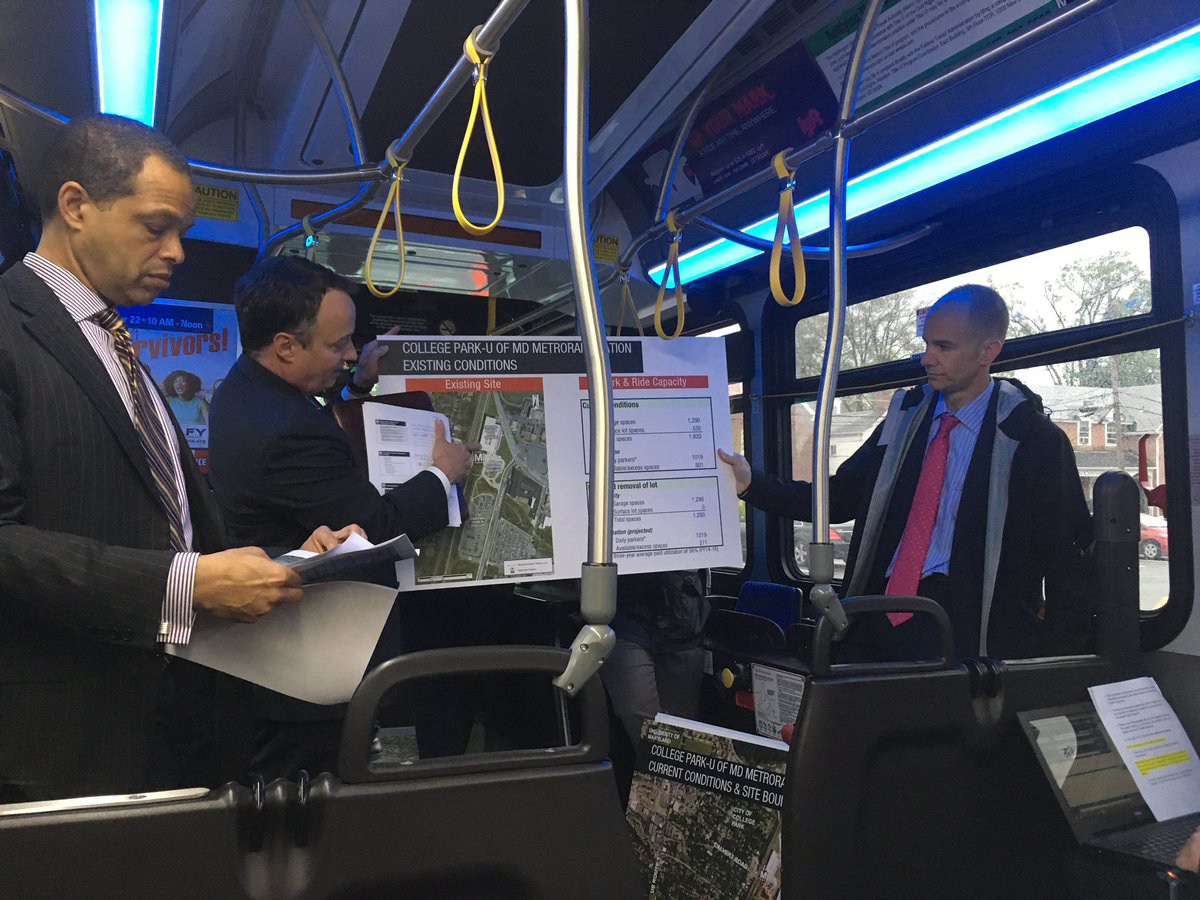Inside a bus parked in front of College Park City Hall, two city residents and one University of Maryland official voiced approval of a WMATA plan to remove the five-acre surface parking lot at the College Park Metro station by 2018.
With an elevator outage forcing the meeting to be held inside a bus, Washington Metropolitan Area Transit Authority officials heard public comments at an open forum Monday night about eliminating the parking lot — pending approval from the Metro Board of Directors — that developers plan to transform into more than 400 apartment units and about 11,900 square feet of retail.
“This project fits in with some other projects the university is working on,” said Edward Maginnis, this university’s assistant vice president for real estate. “The housing it provides is just part of an overall mix of just bringing … a vibrancy, providing opportunities for faculty and staff housing.”
[Read more: UMD on-campus residents could start paying a mandatory fee for unlimited Metro access]
Metro began looking for developers for the site in July 2015 and chose Gilbane Development Co. in April 2016, according to the Washington Business Journal.
There are 1,000 parkers at the Metro per day and more than 1,800 parking spots, but after WMATA eliminates the surface lot there will still be extra parking, said WMATA Senior Real Estate Adviser Andrew Scott. The project will not affect the bus loop and the parking garage, Scott said, and the garage will absorb drivers displaced from the lot.
Removing the parking lot and building retail will provide a “better station experience,” Scott said, adding that it will bring “more people to this station that are going to be living there and riding the transit.”
College Park Estates resident Barbara Chotiner, who has used the Metro since its creation, voiced her approval of WMATA’s decision to remove the lot but asked if it considered providing additional parking to supplement eliminated spaces.
“I wonder if you ought to be a little more sanguine about your long-term ridership … so that people who come in during rush hour, or in the middle of the day, are handicapped or have small children, can bank on using this station, which is compact, convenient and well-managed,” Chotiner said.
[Read more: Metro could supply free WiFi to 30 stations this year]
Eliminating parking for additional development isn’t new at Metro stations, Scott said. Metro’s first retail development project began in the mid-1970s when WMATA began service on the Red Line, he added.
At the end of the meeting, while the bus stood in place, WMATA officials moved forward with the public’s feedback and will provide these comments in a staff report to the Board of Directors for approval in July 2017.
CORRECTION: Due to an editing error, a photo caption on this article incorrectly stated it showed College Park officials. The photo shows WMATA officials. The caption has been updated.



